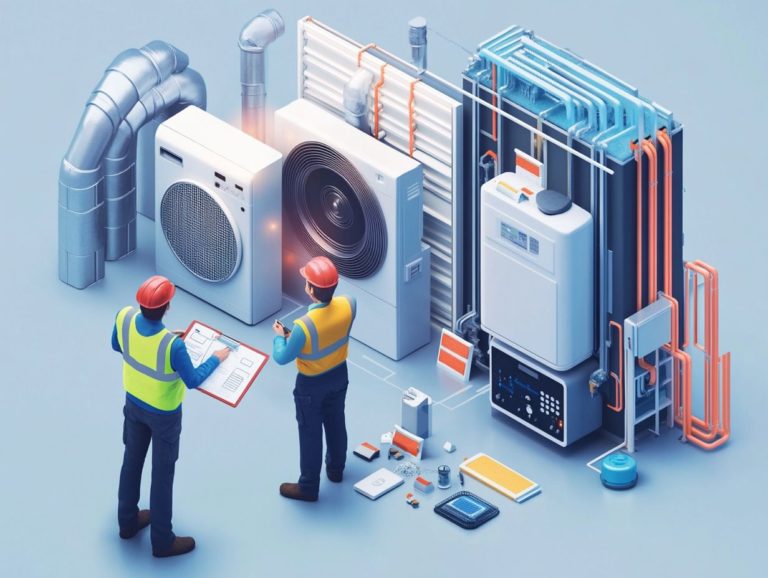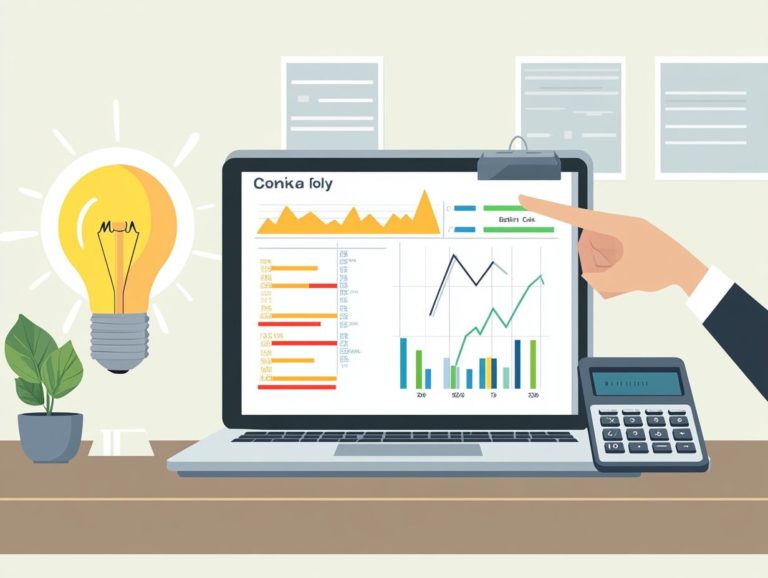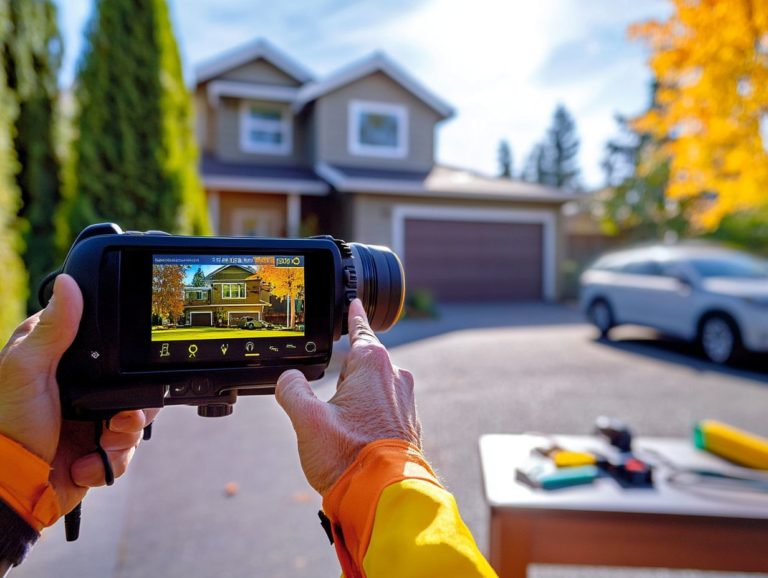5 Ways Energy Audits Enhance Comfort
Are you aiming to elevate your home’s comfort while simultaneously slashing energy costs? An energy audit could be precisely what you’re seeking.
This thorough assessment uncovers areas where energy is escaping. It assists you in prioritizing upgrades that boost efficiency. The benefits are significant. You can enjoy better indoor air quality and noticeable savings on your energy bills.
You ll explore how energy audits function, the various types available, and useful tips on how to prepare for one as a homeowner.
Discover how an energy audit can transform your living space into a haven of comfort and cost-effectiveness!
Contents
- Key Takeaways:
- 1. Identifies Areas of Energy Loss
- 2. Helps Prioritize Energy Efficiency Upgrades
- 3. Increases Energy Efficiency
- 4. Improves Indoor Air Quality
- 5. Saves Money on Energy Bills
- How Does an Energy Audit Work?
- Frequently Asked Questions
- 1. What is an energy audit and how does it enhance comfort in a home or building?
- 2. How Can Energy Audits Enhance Comfort?
- 3. Will My Home Need Major Changes After an Energy Audit?
- 4. How Long Does an Energy Audit Take?
- 5. Who Should Think About Getting an Energy Audit?
- 6. Are There Financial Benefits to an Energy Audit?
Key Takeaways:
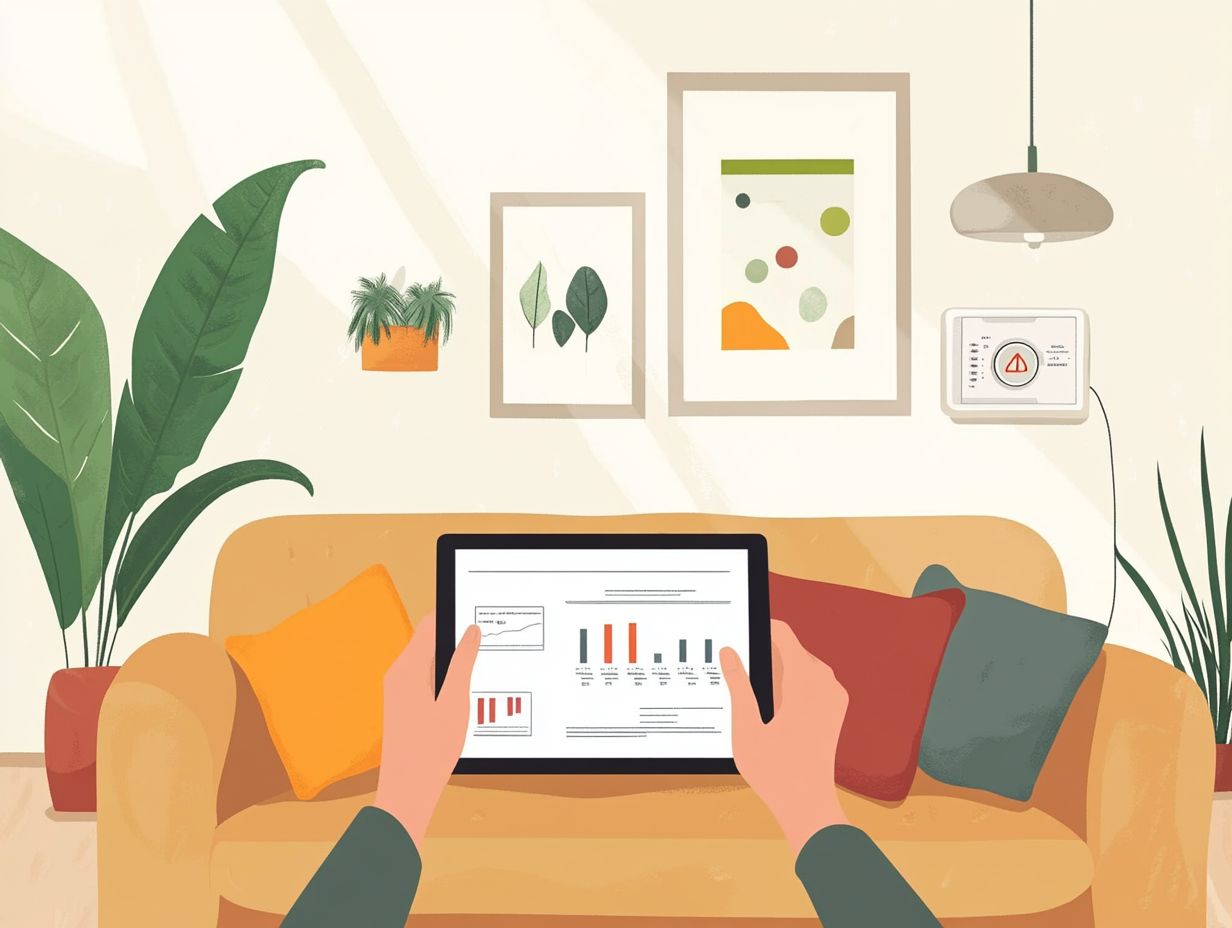
- Identifies areas of energy loss to help save on bills.
- Prioritizes energy efficiency upgrades for comfort.
- Improves indoor air quality for a healthier home.
1. Identifies Areas of Energy Loss
Identifying areas of energy loss is essential for any homeowner aiming to boost energy efficiency in their residence. Consider the various factors at play, such as energy consumption, drafts, and inefficiencies in heating, ventilation, and air conditioning systems. Each one can significantly impact your energy bills and overall comfort in your home.
Energy auditors are your allies in this endeavor. They employ advanced techniques like infrared cameras and blower door tests. These sophisticated tools reveal hidden leaks and temperature differences, pinpointing where inefficiencies are lurking.
Pay particular attention to the building envelope, which encompasses walls, windows, and roofs. Any weaknesses here can lead to substantial energy waste. By addressing these gaps, you can enhance your home’s thermal performance, resulting in lower energy consumption and a more comfortable living environment.
2. Helps Prioritize Energy Efficiency Upgrades
Conducting a professional energy audit allows you to prioritize energy efficiency upgrades. It pinpoints which energy-saving measures will offer the highest potential savings and significantly enhance your home’s overall performance.
This comprehensive evaluation reveals the areas where heat loss is most prevalent, such as drafty windows and insufficient insulation. It also spotlights crucial upgrades like energy-efficient appliances and thermal improvements.
You can then strategically implement these changes, ensuring that each investment plays a meaningful role in your long-term sustainability goals. By addressing the most urgent needs first, you ll create a more comfortable living environment and reduce your carbon footprint.
3. Increases Energy Efficiency
Increasing energy efficiency in your home goes beyond merely cutting down on energy consumption. It s about elevating your comfort and indoor air quality, ultimately leading to significant savings on those energy bills.
You can explore various strategies to achieve these goals, starting with the installation of energy-efficient appliances that consume less electricity without compromising on performance. Upgrading to advanced HVAC systems will also play a crucial role, ensuring that your heating and cooling are optimized while keeping your environment comfortable.
Proper insulation is essential. It prevents energy loss and helps maintain consistent temperatures all year round.
Programs like Efficiency Vermont offer valuable resources and incentives to support you on your journey toward creating a more energy-efficient home. This makes the process not just accessible, but truly rewarding.
4. Improves Indoor Air Quality

Improving indoor air quality is essential for energy-efficient homes. This enhancement boosts your health, comfort, and minimizes your environmental footprint.
Prioritizing proper ventilation allows fresh air to circulate. This significantly reduces pollutants and allergens, fostering a healthier atmosphere.
Thermal improvements, like better insulation and energy-efficient windows, regulate temperature. They also prevent outside contaminants from entering.
Incorporating energy-efficient lighting is another smart move. It reduces heat generation and humidity, making your indoor environment more comfortable.
Your HVAC system is crucial for maintaining balance. It filters airborne particles and controls temperature, ensuring your living space remains healthy.
5. Saves Money on Energy Bills
A home energy audit can lead to significant savings on your energy bills. Implementing energy-saving measures and installing energy-efficient appliances will reduce monthly expenses.
After an audit, you might save an average of 20-30% on utility bills by upgrading insulation and sealing leaks. These savings ease the strain on your wallet and promote a sustainable lifestyle.
Properties that prioritize energy efficiency often see an increase in market value. Homes with modern, efficient systems attract environmentally-conscious buyers.
By adopting these recommendations, you enjoy immediate financial benefits while enhancing your property s long-term viability.
How Does an Energy Audit Work?
An energy audit is a process where certified energy auditors assess your home’s energy performance. They use techniques like blower door tests and infrared cameras to find inefficiencies and suggest tailored solutions.
The assessment starts with an initial evaluation. Auditors review your utility bills and conduct interviews to understand your household’s energy habits.
Next, diagnostic tools measure air leaks, insulation levels, and the overall performance of systems. Once data is gathered, the auditor crafts detailed recommendations to boost energy efficiency.
Engaging a certified auditor is essential. They have the expertise to conduct comprehensive evaluations and propose effective upgrades.
What Are the Different Types of Energy Audits?
There are various types of energy audits, differing in scope and detail. You might consider a home energy audit focused on residential properties or a comprehensive assessment that evaluates HVAC systems.
A basic energy audit acts as a preliminary assessment, providing a general overview and straightforward recommendations. This option is perfect for a quick, cost-effective solution.
A detailed energy assessment goes deeper, using advanced tools to pinpoint inefficiencies and craft tailored upgrade plans. This is beneficial if you re planning significant renovations.
Utility company audits can offer incentives or rebates for strategic changes. Understanding these distinctions helps you select the best option for your needs.
What Are the Benefits of Conducting an Energy Audit?
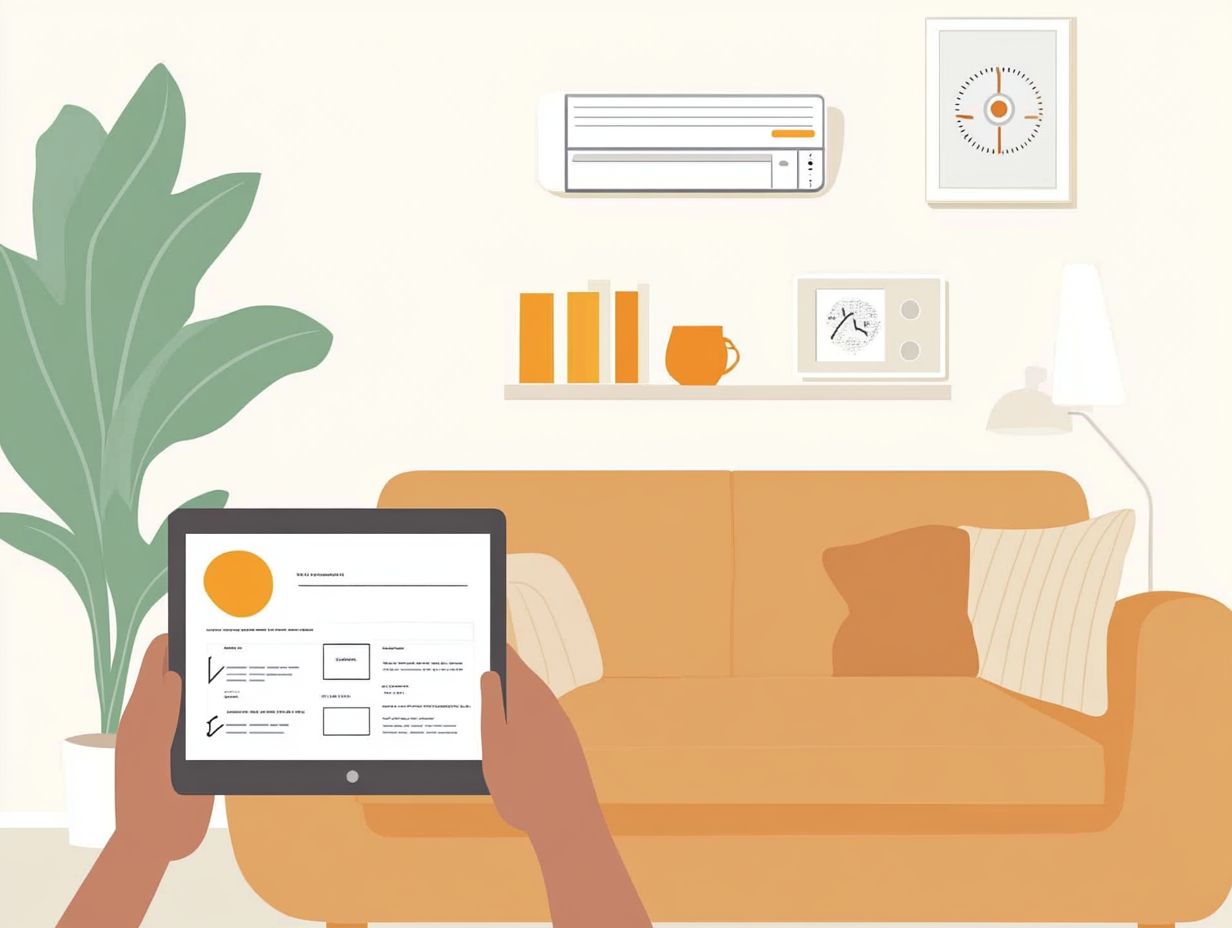
Conducting an energy audit provides numerous benefits, including enhanced energy efficiency, lower energy bills, improved comfort, and a smaller carbon footprint. For homeowners wanting to maximize their investment, understanding the benefits of professional energy audits is a crucial step.
By identifying areas of energy waste, you can make targeted improvements that lead to significant savings on your monthly utility bills and contribute to environmental sustainability.
For instance, upgrading your insulation and installing energy-efficient windows can substantially reduce your heating and cooling costs. Using less energy means a smaller overall impact on the planet.
These upgrades also boost your property value, making your home more appealing to potential buyers who prioritize energy efficiency.
Think of an energy audit as your ticket to comfort and savings!
How Often Should Energy Audits Be Done?
Consider scheduling energy audits every three to five years to maintain your home’s energy efficiency and uncover new upgrade opportunities as technologies and standards evolve.
Major home improvements, rising utility costs, or the addition of new appliances can influence how often you need these assessments. After renovations or installing energy-hungry devices, a thorough evaluation can uncover inefficiencies that you might not notice otherwise.
With energy prices constantly changing, staying informed through regular audits can help you adjust your energy use and control your bills. Don’t wait too long! Schedule your energy audit now to start saving today.
What Are the Common Findings of an Energy Audit?
Common findings from energy audits often reveal issues like drafts, air leaks, inefficient heating and cooling systems, and outdated appliances all of which can inflate your energy bills and reduce your comfort.
These issues typically stem from poor insulation or appliances lacking energy efficiency. For example, drafts can sneak in through gaps around windows and doors, but simple fixes like weatherstripping or caulking can make a big difference.
If your heating and cooling system (HVAC Heating, Ventilation, and Air Conditioning) isn’t well-maintained, you could waste a lot of energy. Regular inspections and filter changes can greatly improve its efficiency.
Replacing old appliances with ENERGY STAR certified models not only cuts electricity use but also enhances your home’s comfort and functionality. Tackling these issues with targeted solutions can lead to substantial savings and create a more enjoyable living space.
How Can Homeowners Prepare for an Energy Audit?
You can prepare for an energy audit by evaluating your home’s energy usage, gathering utility bills, and ensuring easy access to areas like attics and basements for the auditors. These steps can significantly improve the efficiency of the audit process.
Here are some important actions to consider:
- Document your historical energy bills from the past year to spot consumption trends.
- Note specific areas in your home that feel uncomfortable, like drafty windows or chilly rooms.
- Clear out spaces such as the attic, basement, and utility rooms, allowing auditors to inspect without obstructions.
Consulting resources like Efficiency Vermont can also provide valuable information and assistance on energy efficiency initiatives.
Frequently Asked Questions
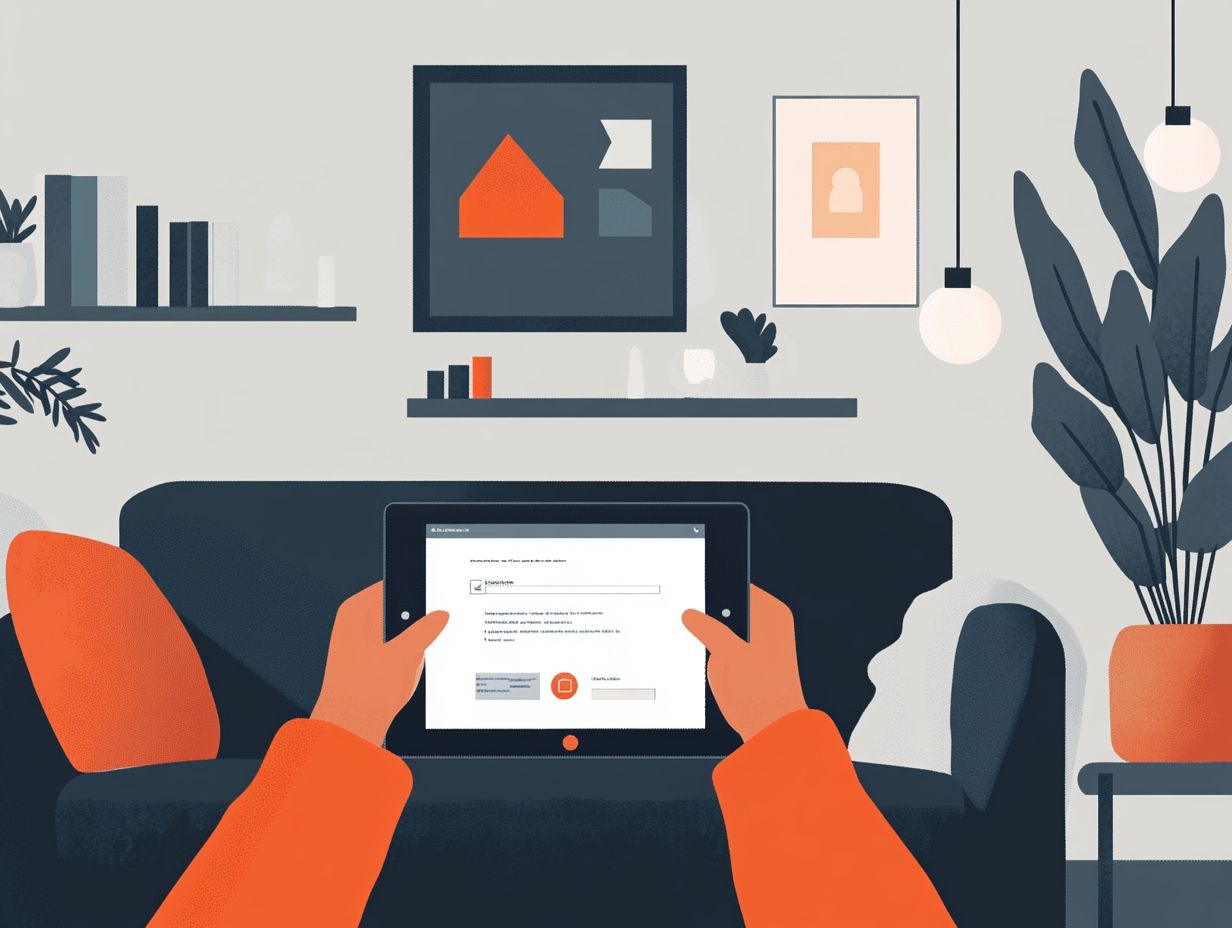
1. What is an energy audit and how does it enhance comfort in a home or building?
An energy audit is a process of evaluating the energy efficiency and consumption of a home or building. By identifying areas of energy waste and making recommendations for improvements, an energy audit can enhance comfort by creating a more energy-efficient living or working environment.
2. How Can Energy Audits Enhance Comfort?
Energy audits can significantly enhance comfort in five main ways:
- Improving indoor air quality
- Reducing drafts and temperature changes
- Increasing natural light
- Minimizing noise levels
- Lowering utility costs
3. Will My Home Need Major Changes After an Energy Audit?
No, an energy audit is simply a check-up. It identifies areas for improvement, but any changes are left to you as the homeowner.
4. How Long Does an Energy Audit Take?
The time required for an energy audit varies by size and complexity. Most audits can be done in just a few hours.
5. Who Should Think About Getting an Energy Audit?
If you want a more comfortable and energy-efficient space, an energy audit is for you! This includes homeowners, renters, and building owners of residential and commercial properties.
6. Are There Financial Benefits to an Energy Audit?
Yes, many energy audits come with financial incentives such as rebates or tax credits. The energy savings from recommended improvements can lead to long-term reductions in your utility bills.

